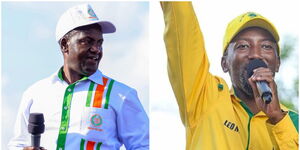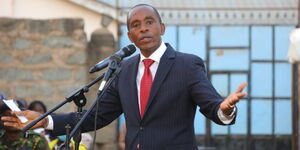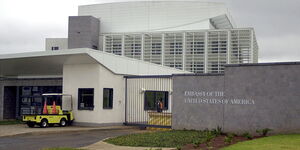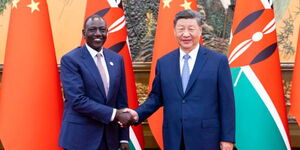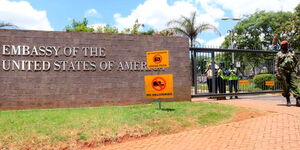Kenya has sided with the People’s Republic of China in opposing any form of Taiwanese independence as it seeks to deepen its relations with the Asian nation.
During the ongoing four-day official state visit to China by President William Ruto, Kenya reaffirmed its commitment to the one-China policy that dictates there is only one China in the world. The policy is geared towards the total reunification of China, which involves the absorption of Taiwan.
“Kenya reaffirmed its commitment to the one-China principle and recognises that there is but one China in the world, Taiwan is an inalienable part of China’s territory, and the government of the People’s Republic of China is the sole legal government representing the whole of China,” a joint statement from a high-level bilateral meeting read.
“Kenya resolutely opposes any form of 'Taiwan independence' and supports all efforts by the Chinese government to achieve national reunification,” it further added.
Kenya’s move presents a complex challenge, as the United States, a significant player in Kenya’s socio-economic and political activities, is one of China’s biggest rivals and unofficially supports Taiwan.
The latest development means Kenya will continue to walk a tightrope between its strategic partnership with the West (US, European Union, World Bank) and its financial ties with China.
Even though the US follows the One China Policy, it maintains a strong unofficial relationship with Taiwan through the provision of military support to the island nation.
Currently, tensions between China and the US are simmering after US President Donald Trump imposed hefty taxes on Chinese products as he pushes his aggressive ‘America first’ policy. This prompted retaliatory tariffs by China, which has vowed not to back down from its stand.
This, in turn, has had a direct impact on global trade, with the economies of other developed and developing countries more vulnerable to shocks as the dispute over the global superpowers simmers on.
Recently, China’s growing fortunes in its economy and military have resulted in the superpower exerting more pressure on Taiwan to fold, but this has been met with staunch resistance. In a show of its military power earlier in April, China staged military drills off Taiwan's north, south and east coasts, issuing a stern warning against separatism and calling Taiwanese President Lai Ching-te a "parasite".
The conduct of the drill was the second in three years as China aimed to exert its superiority over the small nation.
In 2022, after a visit to Taiwan by US Speaker Nancy Pelosi, China responded with an unprecedented show of force, carrying out military exercises around Taiwan in retaliation.


